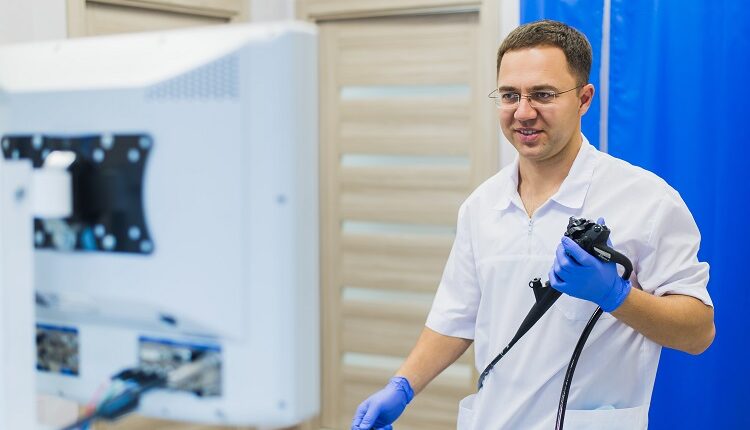Colonoscopy is a procedure where a doctor uses a scope or colonoscope to look inside the colon or rectum. Colonoscopy can show ulcers, polyps, swollen tissue, and cancer. During the procedure, a long and flexible tube known as the colonoscope is inserted into the rectum.
A tiny video camera that’s located at the end of the colonoscope enables doctors to view the inside of the entire colon. If needed, polyps and other types of abnormal tissues can be removed using the scope during colonoscopy. Biopsies (or tissue samples) can also be taken during the procedure.
A colonoscopy may be recommended in the following scenarios:
- Screen for colon cancer. If you are 50 years old (or older) and at average risk of colon cancer, your doctor might recommend getting a colonoscopy every 10 years. If you have other risk factors, your doctor might recommend getting a colonoscopy sooner. The procedure is one of a few options for colon cancer screening.
- Look for polyps. If you had polyps before, a follow-up colonoscopy may be recommended to look for (and remove) additional polyps. This is done to minimize your risk of developing colon cancer.
- Investigate intestinal symptoms and signs. The procedure is used to help doctors explore the possible causes of rectal bleeding, chronic diarrhea, abdominal bleeding, and other intestinal problems.
- Treat other issues. At times, colonoscopy is carried out for other treatment purposes like removing an object in the colon or placing a stent.
Table of Contents
Risks
Colonoscopy has very few risks. Some of the rare complications of the procedure can include:
- Reaction to the sedative used during the procedure
- A tear (perforation) in the rectum wall or colon
- Bleeding from the site where the biopsy (sample tissue) was taken
Preparation
Before the procedure, you will need to empty (clean out) your colon. Any residue in the colon might make it difficult for doctors to get a good view of the rectum or colon during the procedure. To empty your colon, you may be asked to:
- Take a bowel prep. A prescription bowel prep might be recommended, either in liquid or pill form. Typically, you will be instructed to take the bowel prep the night before the procedure. It is also possible that you will be asked to use the bowel prep the night prior and the morning of the procedure.
- Follow a special diet the day before the procedure. Usually, you will be instructed not to eat any solid food the day before the procedure. Your drinks may be limited to clear liquids like tea, plain water, carbonated beverages, and coffee without cream or milk. You also need to avoid red liquid as it can be mistaken for blood.
- Adjust your medications. Inform your doctor about your medications a week before the procedure. This is especially important if you are taking medications for high blood pressure or diabetes or if you are taking supplements and medications that contain iron. You need to also inform your doctor if you are taking aspirin or other medications that thin the blood or heart medications that can affect the platelets.
Either your doctor will stop your dosage or you will be asked to stop taking the medications for the time being. If your doctor has any concerns about the quality of the view through the scope, a repeat colonoscopy might be recommended.
It is also possible that a shorter time may be recommended until your next colonoscopy. If the doctor is unable to advance the scope through your entire colon, a virtual colonoscopy might be recommended so your doctor can examine the rest of your colon.


